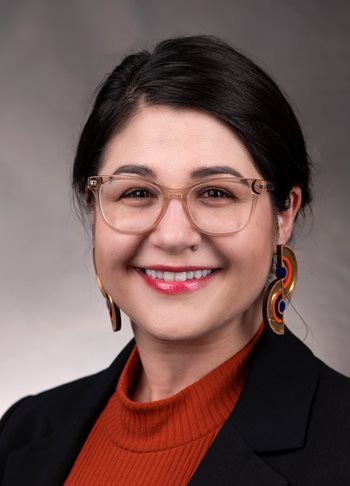Wiezel, an assistant professor of psychology, examines whether being female is an electoral strength or weakness for Kamala Harris.
How is gender factoring into voter preferences in the 2024 presidential election? In a column published by Psychology Today titled “Is Being Female an Electoral Strength or Weakness for Kamala Harris?,” Assistant Professor Adi Wiezel points to new data that shows Kamala Harris may enjoy a small advantage among prospective voters for being a woman.

In the column, Wiezel draws from her research recently published in the journal Evolution and Human Behavior that found that “despite a half-century of progress following the development of modern feminism, most people continue to think of leaders as men. However, those studies also found the second step is not true: The stereotype of dominant male leaders does not translate into a preference. In fact, the opposite is true.”
Wiezel’s research included an analysis of 133 different elections from 50 countries including the 2008 and 2012 elections, and found that women who run for office generally have higher chances of winning than men do. A key factor contributing to the predominance of men in elected offices is that far fewer women run for office, Wiezel notes.
About the 2024 presidential election, Wiezel writes:
Since 2016, Donald Trump has leaned even more aggressively into the “alpha male” leadership style—demonstrating hostility toward anyone who gets in his way or who disagrees with him. Although this style of leadership is often a turn-off, other research suggests that it can work if voters can be convinced an election is a war of “us” versus “them.” Nevertheless, it is critically important to realize that, all else being equal, the data indicate that being a female should help, rather than hurt, Kamala Harris’ chances of winning the presidency.
Read the full article for more information.
Wiezel is a social and political psychologist whose research emphasizes the structure of political attitudes as well as the emotional, motivational, social mechanisms of attitude change and intergroup relations. She also has strong interests in leadership preferences, and has studied the influence of emotion on motivation and engagement in educational settings. She earned her doctorate in social psychology, as well as a master’s degree in political science, at Arizona State University.


